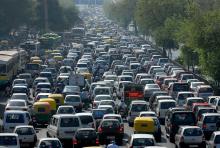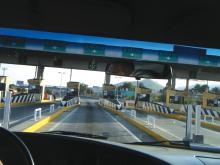Many US cities depend heavily on road transport for carrying goods and commuting. However as many inhabitants and visitors to Los Angeles can attest, the sprawling city and its many highways and urban roads can be frustratingly difficult to drive through at peak periods. Jams are frequent and even comparatively short journeys can take a long time.
Whether the congestion charging scheme would prove popular with the city’s inhabitants remains to be seen. Given the widespread dependence on cars for personal transport, as well as the undeveloped nature of the public transport system (with comparatively few routes for its metro), it seems likely that resistance to the proposals will be high.
But resistance to congestion charging proposals will not get people to and from their work any quicker. It is worth remembering that several studies have listed Los Angeles amongst the world’s top 10 most traffic-congested cities. Other major cities around the world that are notorious for traffic delays include Bangkok, Beijing, Cairo, Delhi, Istanbul, Mexico City, Moscow and Sao Paulo.
The proposed scheme would see drivers in Los Angeles being charged for entering certain districts of the city at peak travel periods. This novel proposal has been put forward as a way of smoothing out transport ahead of the 2028 Olympic Games. Reducing traffic congestion through a charging system would also help lower pollution levels in the city, with its bad smog problem.
London did set a precedent when it commenced its congestion charging scheme in 2003. The move cut congestion in the charging zone by 10% in the decade following its introduction. Meanwhile the scheme also raised considerable revenue, which was directed towards the city’s transport system.
Other major cities with some form of congestion charging for road users include Milan, Singapore and Stockholm. As with London, the authorities in these cities were keen to reduce traffic congestion and journey times, as well as lowering urban pollution. Congestion charging or road user charging have also been proposed as ways of reducing traffic delays in Hong Kong, although the city does have rather better public transport facilities than most US cities.
Nor is Los Angeles the only US city to be considering introducing a congestion charging scheme for drivers. Proposals have also been put forward to establish congestion charging in New York City. It is of note that New York City is one of the few cities in the US with a well-developed public transport system. However the city’s subway system has suffered from insufficient funding over a number of years and is now in desperate need of additional funding, which a congestion charging scheme could help deliver.
Cutting congestion in LA?
A new proposal has been put forward for Los Angeles suggesting that a congestion charging scheme be introduced to help tackle the city’s transport woes. According to the CEO of the Los Angeles Metro system, the revenue from the congestion charge for drivers could then be used to allow people to use the city’s transit system for free.
Many US cities depend heavily on road transport for carrying goods and commuting. However as many inhabitants and visitors to Los Angeles can attest, the sprawling city and it
A new proposal has been put forward for Los Angeles suggesting that a congestion charging scheme be introduced to help tackle the city’s transport woes. According to the CEO of the Los Angeles Metro system, the revenue from the congestion charge for drivers could then be used to allow people to use the city’s transit system for free.








